(Enter into force on: 1 March, 1954)
1. Short title.
This Act may be cited as the Bribery Act.
2. Effect of this Act on operation of other written law.
(1) Every provision of this Act which may be in conflict or inconsistent with anything in the Ceylon (Constitution) Order in Council, 1946,* shall for all purposes and in all respects be as valid and effectual as though that provision were in an Act for the amendment of that Order in Council enacted by Parliament after compliance with the requirement imposed by the proviso of subsection (4) of section 29 of that Order in Council.
(2) Where the provisions of this Act are in conflict or are inconsistent with any other written law, this Act shall prevail.
* Repealed by the Constitution of Sri Lanka, 1972, which itself has been repealed by the Constitution of the Democratic Socialist Republic of Sri Lanka, 1978.
PART I Investigation of Allegations Of, And Prosecution for Bribery
6. Application of the Code of Criminal Procedure Act, No. 15 of 1978.
(1) Such of the provisions of the Code of Criminal Procedure Act, No. 15 of 1979, as are not excluded by subsection
(2) or are not inconsistent with the provisions of this Act shall apply to proceedings instituted in a court for offences under this Act.
(2) Section 306 of the Code of Criminal Procedure Act, No. 15 of 1979, shall not apply to proceedings in the Magistrate’s Court for offences under this Act.
Sections 2A, 3, 4 and 5 are repealed by Act No. 20 of 1994.
8. Jurisdiction to try an indictment for bribery in respect of an offence under section 23A.
Notwithstanding the provisions of any other written law to the contrary, the High Court Holden in any judicial zone shall have jurisdiction to try an indictment for bribery in respect of an offence under section 23A of this Act.
Section 7 is repealed by Act No. 20 of 1994.
11. calling of witnesses and use and production of documents not specified in the indictment.
At the trial of a person for an offence under this Act, the court or the prosecutor may, notwithstanding anything to the contrary in any other written law, call any such witness, or use or produce any such document, as is not specified in the list of witnesses or productions.
Sections 9 and 10 are repealed by Act No. 9 of 1980 and Act No. 20 of 1994 respectively.
12. Manner of service of summons on any persons issued in proceedings in court for bribery
In addition to the manner of service of summons on witnesses prescribed by the Code of Criminal Procedure Act, No. 15 of 1979, summons on any person issued in proceedings in a court for bribery may served in the following manner:-
(a) By registered letter addressed and dispatched by express post to the person to be summoned; or
(b) In the case of a public officer, by registered letter addressed and dispatched by express post to the head of the department, office or establishment in which such public officer is employed; or Manner of service of summons on any person issued in proceedings in court for bribery.
(c) in the case of any person who is employed under any other person, by registered letter addressed and dispatched by express post to the employer; or
(d) Through any gram niladhari; or
(e) In urgent cases by telegram.
PART II Offences of Bribery
14. Bribery of judicial officers and Members of Parliament.
A person–
(a) who offers any gratification to a judicial officer, or to a Member of Parliament, as an inducement or a reward for such officer’s or Member’s doing or forbearing to do any act in his judicial capacity or in his capacity as such Member, or
(b) who, being a judicial officer or a Member of Parliament, solicits or accepts any gratification as an inducement or a reward for his doing or forbearing to do any act in his judicial capacity or in his capacity as such Member, shall be guilty of an offence punishable with rigorous imprisonment for a term not exceeding seven years and a fine not exceeding five thousand rupees:
Provided, however, that it shall not be an offence under the preceding provisions of this section for any trade union or other organization to offer to a Member of Parliament, or for any such Member to accept from any trade union or other organization, any allowance or other payment solely for the purposes of his maintenance.
Section 13 is repealed by Act, No. 20 of 1994.
15. Acceptance of gratification by Members of Parliament for interviewing public officers.
A Member of Parliament who solicits or accepts any gratification as an inducement or a reward for–
(a) His interviewing a public officer on behalf of any person, or
(b) his appearing on behalf of any person before a public officer exercising judicial or quasijudicial functions, shall be guilty of an offence punishable with rigorous imprisonment for a term not exceeding seven years and a fine not exceeding five thousand rupees:
Provided, however, that it shall not be an offence under the preceding provisions of this section for a Member of Parliament to appear as an attorney-at-law before a court or before a statutory tribunal of which a public officer is not a member.
16. Bribery of police officers and peace officers and other public officers.
A person–
(a) who offers any gratification to any police officer, peace officer, or other public officer employed in any capacity for the prosecution, detection or punishment of offenders, or to an officer of a court, as an inducement or a reward for such officer’s interfering with the due administration of justice, or procuring or facilitating the commission of any offence, or protecting from detection or punishment the perpetrator of any offence, or abusing his official powers to the injury or detriment of any person, or
(b) who, being any such officer, solicits or accepts any gratification as an inducement or a reward for such interfering, procuring, facilitating, protecting, or abusing as is referred to in paragraph (a) of this section, shall be guilty of an offence punishable with rigorous imprisonment for a term not exceeding seven years and a fine not exceeding five thousand rupees.
17. Bribery for giving assistance or using influence in regard to contracts.
A person–
(a) who offers any gratification to a public officer as an inducement for a reward for such public officer’s giving assistance or using influence in the promotion of the procuring of any contract with the Government for the performance of any work, the providing of any service, the doing of anything, or the supplying of any article, material or substance, or in the execution of any such contract, or in the payment of the price or consideration stipulated therein or of any subsidy payable in respect thereof, or
(b) who, being a public officer, solicits or accepts any gratification as an inducement or a reward for his giving assistance or using influence in the promotion of the procuring of any such contract as is referred to in paragraph (a) of this section, or in the execution of any such contract, or in the payment of the price or consideration stipulated therein or of any subsidy payable in respect thereof, shall be guilty of an offence punishable with rigorous imprisonment for a term of not more than seven years and a fine not exceeding five thousand rupees.
18. Bribery for procuring withdrawal of tenders.
A person–
(a) who, with intent to obtain from the Government a contract for performing any work, providing any service, doing anything, or supplying any article, material or substance, offers any gratification to any person who has made a tender for such contract, as an inducement or reward for his withdrawing such tender, or
(b) Who solicits or accepts any gratification as an inducement or reward for his withdrawing a tender made by him for such contract, shall be guilty of an offence punishable with rigorous imprisonment for a term of not more than seven years and a fine not exceeding five thousand rupees.
19. Bribery in respect of Government business.
A person–
(a) who offers any gratification to a public officer as an inducement or a reward for that public officer’s performing or abstaining from performing any official act, or expediting, delaying, hindering or preventing the performance of any official act whether by that public officer or by any other public officer or assisting, favoring, hindering or delaying any person in the transaction of any business with the Government, or (b) who, being a public officer, solicits or accepts any gratification as an inducement or a reward for his performing or abstaining from performing any official act or for such expediting, delaying, hindering, preventing, assisting or favoring as is referred to in paragraph (a) of this section, or
(c) Who, being a public officer, solicits or accepts any gratification,
Shall be guilty of an offence punishable with rigorous imprisonment for a term of not more than seven years and a fine not exceeding five thousand rupees:
Provided, however, that it shall not be an offence for a public officer to solicit or accept any gratification which he is authorized by law or the terms of his employment to receive;
Provided further that section 35 of the Medical Ordinance shall not entitle a medical practitioner who is a public officer to solicit or accept any gratification.
20. Bribery in connation with payment of claims, appointments, employments, grants leases, and other benefits.
A person–
(a) Who offers any gratification to any person as an inducement or a reward for–?
(I) his procuring from the Government the payment of the whole or a part of any claim, or
(ii) His procuring or furthering the appointment of the first-mentioned person or of any other person to any office, or
(iii) His preventing the appointment of any other person to any office, or (IV) his procuring, or further the securing of, any employment for the first-mentioned person or for any other person in any department, office or establishment of the Government, or
(v) His preventing the securing of any employment for any other person in any department, office or establishment of the Government, or
(vi) His procuring, or furthering the securing of, any grant, lease or other benefit from the Government for the first-mentioned person or for any other person, or
(vii) His preventing the securing of any such grant, lease or benefit for any other person, or
(b) who solicits or accepts any gratification as an inducement or a reward for his doing any of the acts specified in sub-paragraphs (I), (ii), (iii), (iv), (v), (vi) and (vii) of paragraph (a) of this section, shall be guilty of an offence punishable with rigorous imprisonment for a term of not more than seven years and a fine not exceeding five thousand rupees.
21. Bribery of public officers by persons having dealings with the Government.
A person–
(a) Who, while having dealings of any kind with the Government through any department, office or establishment of the Government, offers any gratification to any public officer employed in that
Department, office or establishment, or (b) who, within one year before or after his having dealings
Of any kind with the Government through any department, office or establishment of the Government, offers any gratification to any public officer employed in that department, office or establishment, or
(c) Who, being a public officer, solicits or accepts any gratification the offer of which is an offence under this section,
Shall be guilty of an offence punishable with rigorous imprisonment for a term of not more than seven years and a fine not exceeding five thousand rupees:
Provided, however, that such offer of a gratification to a public officer as is referred to in paragraph (b) of this section shall not be an offence under this section if the offered proves that the gratification was bona fide offered for a purpose not connected with and not relating to such dealings as are referred to in that paragraph and that when he offered the gratification he had no hope or expectation of having any such dealings or he did not intend that the gratification should be an inducement or a reward for that public officer’s doing or forbearing to do any act connected
With or relating to any such dealings.
22. Bribery of member of local authority, or of scheduled institution, or of governing body of scheduled institution, and bribery of officer or employee of local authority or of such institution.
A person–
(a) Who offers any gratification to any member of a local authority, or of a scheduled institution, or of the governing body of a scheduled institution, as an inducement or a reward for–?
(I) such member’s voting or abstaining from voting at any meeting of such local authority, scheduled institution, or governing body or of a committee thereof in favor of or against any measure, resolution or question submitted to such local authority, scheduled institution, governing body, or committee, or
(ii) Such member’s performing, or abstaining from performing, or his aid in procuring, expediting,
Delaying, hindering or preventing the performance of, any official act, or
(iii) Such member’s aid in procuring or preventing the passing of any vote or the granting of any contract or advantage in favor of any person, or
(b) Who offers any gratification to any officer or employee of any local authority, or of any scheduled institution, as an inducement or a reward for–?
(I) such officer’s or employee’s performing or abstaining from performing, or his aid in procuring, expediting, delaying, hindering or preventing the performance of, any official act, or
(ii) Such officer’s or employee’s procuring or preventing the passing of any vote or the granting of any contract or advantage in favor of any person, or
(c) who, being such member as is referred to in paragraph (a) of this section, solicits or accepts any gratification as an inducement or a reward for any such act, or any such abstaining, as is referred to in sub-paragraphs (I), (ii) and (iii) of that paragraph, or
(d) who, being such officer or employee as is referred to in paragraph (b) of this section, solicits or accepts any gratification as an inducement or a reward for any such act, or any such abstaining, as is referred to in subparagraphs (I) and (ii) of that paragraph,
Shall be guilty of an offence punishable with rigorous imprisonment for a term not exceeding seven years and a fine not exceeding five thousand rupees.
23. Use of threats or fraud to influence vote of member of local authority, or of scheduled institution, or of governing body of scheduled institution.
A person–
(a) who, attempts by any threat, deceit, suppression of the truth or other unlawful means to influence any member of a local authority, or of a scheduled institution, or of the governing body of a scheduled institution in giving or withholding his vote in favor of or against any measure, motion, resolution or question submitted to any meeting, or in not attending any meeting, of such local authority, scheduled institution, or governing body or of any committee thereof, or
(b) who attempts by any such means as in the last preceding paragraph mentioned to influence any member or any officer or employee of a local authority, or of a scheduled institution, or of the governing body of scheduled institution to aid in procuring or preventing the passing of any vote or the granting of any contract or advantage in favor of any person, or to perform or abstain from performing, or to aid in procuring, expediting, delaying, hindering or preventing the performance of, any official act,
Shall be guilty of an offence punishable with rigorous imprisonment for a term not exceeding seven years and a fine not exceeding five thousand rupees.
23A. to own or to have owned property deemed under this section to be property acquired by bribery or property to which property acquired by bribery has or had been converted is to be an offence.
(1) Where a person has or had acquired any property on or after March 1, 1954, and such property–
(a) Being money, cannot be or could not have been–
(I) part of his known income or receipts, or
(ii) Money to which any part of his known receipts has or had been converted; or
(b) Being property other than money, cannot be or could not have been–
(I) property acquired with part of his known income, or
(ii) Property which is or was part of his known receipts, or
(iii) property to which any part of his known receipts has or had been converted, then, for the purposes of any prosecution under this section, it shall be deemed, until the contrary is proved by him, that such property is or was property which he has or had acquired by bribery or to which he has or had converted any property acquired by him by bribery.
(2) In subsection (1), “income” does not include income from bribery, and “receipts” do not include receipts from bribery.
(3) A person who is or had been the owner of any property which is deemed under subsection (1) to be property which he has or had acquired by bribery or to which he has or had converted any property acquired by him by bribery shall be guilty of an offence punishable with rigorous imprisonment for a term of not more than seven years and a fine not exceeding five thousand rupees:
Provided that where such property is or was money deposited to the credit of such person’s account in any bank and he satisfies the court that such deposit has or had been made by any other person without his consent or knowledge, he shall not be guilty of an offence under the preceding provisions of this subsection.
(4) No prosecution for an offence under this section shall be instituted against any person unless the Commission has given such person an opportunity to show because why he should not be prosecuted for such offence and he has failed to show cause or the cause shown by him unsatisfactory in the opinion of such Commission.
(5) For the purposes of this section, where a spouse or unmarried child under the age of eighteen years of a person has or had acquired any property movable or immovable on or after March 1, 1954, it shall be presumed until the contrary is proved that such property was acquired by such person aforesaid and not by such spouse or unmarried child, as the case may be.
(6) In any prosecution for an offence under this section a certificate from the Chief Value with regard to the value of any immovable property or the cost of construction of any building on such property shall be sufficient proof of such value and cost of construction unless and until the contrary is proved.
In this subsection, “Chief Value” means the Chief Value of the Government, and includes any Senior Assistant Value, or Assistant Value of the Government Valuation Department.
(7) For the purpose of this section “a person” shall mean any person whomsoever, whether or not such person can be shown to have been concerned with any act referred to in section 18 or section 20 or whether or not he is public officer within the meaning of this Act.
24. Acceptor of gratification to be guilty notwithstanding that purpose not carried out &c.
Where in any proceedings against any person for any offence under any section in this Part of this Act, it is proved that he accepted any gratification, having grounds to believe or suspect that the gratification was offered in consideration of his doing or forbearing to do any act referred to in that section, he shall be guilty of an offence under that section notwithstanding that he did not actually have the power, right or opportunity so to do or forbear or that he accepted the gratification without intending so do or forbear or that he did not in fact so do or forbear.
25. Attempt to commit, and abetment of, an offence under this Part.
(1) A person who attempts to commit or to cause the commission of an offence under this Part of this Act and in such attempt does any act towards the commission of that offence shall be guilty of an offence and shall be tried in the same manner, and shall upon conviction be liable to the same punishment, as is prescribed by this Act for the first-mentioned offence.
(2) A person who abets an offence under this Part of this Act shall be guilty of an offence and shall be tried in the same manner, and shall upon conviction be liable to the same punishment, as is prescribed by this Act for the first-mentioned offence. In this subsection the expression “abet” shall have the same meaning as in sections 100 and 101 of the Penal Code.
(3) A person who conspires with any other person to commit an offence under this Part of this Act shall be guilty of an offence and shall be tried in the same manner and shall upon conviction be liable to the same punishment as is prescribed by this Act for the first-mentioned offence. In this subsection, the expression “conspire” shall have the same meaning as in section 113A of the Penal Code.
26. When penalty to be imposed in addition to other punishment.
Where a court convicts any person of an offence committed by the acceptance of any gratification in contravention of any provision of this Part of this Act, then, if that gratification is a sum of money or if the value of that gratification can be assessed, the court shall, in addition to the court’s imposing on that person any other punishment, order him to pay as a penalty, within such time as may be specified in the order, a sum which is equal to the amount of that gratification or is, in the opinion of the court, the value of that gratification.
26A. Additional fine to be imposed.
Where the High Court convicts any person of an offence under section 23A, it shall, in addition to any other penalty that it is required to impose under this Act, impose a fine of not less than the amount which such court has found to have been acquired by bribery or by the proceeds of bribery or converted to property by bribery, or by the proceeds of bribery and not more than three times such amount.
28. Recovery of fine or penalty imposed by court.
(1) A fine or a penalty imposed by a court on any person for bribery may be recovered as if the order imposing the fine or the penalty were a decree entered by the District Court in favor of the State and against that person.
†(3) Where the person liable to pay the fine or penalty referred to in the preceding provisions of this section was a public officer on the date of commission of the offence for which the fine or penalty was imposed, then, notwithstanding anything to the contrary in any other written law, any movable or immovable property acquired after that date by the spouse of, or a son or daughter maintained by, such person shall, in addition to the movable and immovable property of such person, be liable to be seized and sold for the recovery of the amount of such fine or penalty, if the property so acquired–
(a) Was purchased by such spouse, son or daughter, or
(b) Was purchased in the name of such spouse. Son or daughter by the person liable to pay such fine or penalty, or
(c) Was acquired by such spouse, son or daughter by purchase, gift or otherwise from the person who offered the gratification for the acceptance of which the person liable to pay such fine or penalty became so liable, or
(d) Was acquired by testate or intestate succession from the person liable to pay such fine or penalty.
Section 27 is repealed by Act No. 20 of 1994.
Subsections (2) and (4) are repealed by Act No. 2 of 1965.
28A. Forfeiture of property in relation to which an offence has been committed.
(1) Notwithstanding anything to the contrary in any other provision of this Act, where a court convicts a person of an offence under this Part of this Act, the court may in lieu of imposing a penalty or fine under section 26 or section 26A, make order that any movable or immovable property found to have been acquired by bribery or by the proceeds of bribery, be forfeited to the State free from all encumbrances:
Provided however that, in determining whether an order of forfeiture should be made, the court shall be entitled to take into consideration whether such an order is likely to prejudice the rights of a bona fide purchaser for value or any other person who has acquired, for value a bona fide interest in such property.
(2) An order made under subsection (1) shall take effect–
(a) Where an appeal has been made to the Court of Appeal or the Supreme Court against the order of forfeiture, upon the determination of such appeal confirming or upholding the order of forfeiture;
(b) Where no appeal has been preferred to the Court of Appeal against the order of forfeiture, after the expiration of the period within which an appeal may be preferred to the Court of Appeal against such order of Court.
Section 28A shall be deemed for all purposes to have come into force on the date of commencement of the principal enactment and accordingly, the punishment described therein may be imposed for an offence committed prior to 15th December, 1994 (appointed date). See section 18 of Act No. 20 of 1994.
29. Effect of a conviction of a person of bribery by a court or the finding of a commission of inquiry that a person is guilty of bribery.
Where a person is convicted or found guilty of bribery by a court or a commission of inquiry, then, by reason of such conviction of finding–
(a) he shall be come incapable for a period of seven years from the date of such conviction or finding of being registered as an elector or of voting at any election under the Ceylon (Parliamentary Elections) Order in Council, 1946, or for a period of five years under the Local Authorities Elections Ordinance, or of being elected or appointed as a Member of Parliament or as a member of a local authority, and, if at that date he has been elected or appointed as a Member of Parliament or member of a local authority, his election or appointment shall be vacated from that date;
(b) He shall be disqualified for all time from being employed as a public officer and from being elected or appointed to a scheduled institution or to the governing body of a scheduled institution;
(c) He shall, if he is a member of a scheduled institution or of the governing body of a scheduled institution, cease to be such member from the date of such conviction or finding; and
(d) He shall, if he is a public officer cease to be a public officer from the date of such conviction or finding and, notwithstanding anything to the contrary in any other written law, be deemed to have been dismissed on that date by the authority empowered by law to dismiss him.
30. Offences under this Part to be cognizable.
All offences under this Part of this Act shall be cognizable offences for the purpose of the application of the provisions of the Code of Criminal Procedure Act, No. 15 of 1979, notwithstanding anything contained in the First Schedule of that Act.
30A. Procedure on detection of person receiving illegal gratification.
(1) Where any officer, appointed to assist the Commission detects any person accepting, soliciting or offering an illegal gratification, such officer shall–
(a) Without unnecessary delay take such person before any Magistrate; or
(b) produce such person before any Magistrate with a certificate under the hand of the Director-General that such person has been detected accepting, soliciting or offering an illegal gratification; or
(c) produce before the Magistrate any currency notes alleged to have been accepted, solicited or offered as an illegal gratification by the person referred to in paragraph (a) or (b) together with a report under the hand of the Director-General that such notes were alleged to have been so accepted, solicited or offered.
(2) Where a person is produced before any Magistrate, under paragraph (b) of subsection (1), the Magistrate shall remand such person until the conclusion of the trial:
Provided however, that the Magistrate may, in exceptional circumstances and for reasons to be recorded release such person on bail at any time prior to the conclusion of the trial.
(3) Where any currency notes are produced before any Magistrate under paragraph (c) of subsection (1) the Magistrate shall issue a certificate under his hand to the effect that notes of the denominations and numbers set out in the certificate were produced before him and such certificate shall be admissible in any proceedings instituted against the person alleged to have accepted, solicited or offered such notes in lieu of producing such notes in such proceedings.
(4) Notwithstanding the provisions of subsection (2), in any proceeding under paragraph (a) or paragraph (b) of subsection (1), where the Commission informs the Magistrate that it does not propose to institute proceedings against the person in custody such person shall be discharged forthwith.
PART III Commissions of Inquiry
32. Power to appoint commissions of inquiry to investigate allegations of bribery.
(1) The President may appoint, by warrant under the Public Seal of the Republic, a commission of inquiry consisting of one or more members to inquire into and report on any allegations of bribery–
(a) made generally against the Cabinet of Ministers, or the Members of Parliament, or the members of any local authority, or the persons appointed by the President to any office, or the members, directors, or governing body of any scheduled institution, or
(B) Made against any particular person or persons specified in paragraph (a) of this subsection.
(2) A warrant appointing a commission of inquiry under this Act shall contain such particulars as are required by subsection (2) of section 2 of the Commissions of Inquiry Act, to be set out in a warrant issued under that Act.
Section 31 is repealed by Act No. 9 of 1980.
33. Application of provisions of Commissions of Inquiry Act.
Upon the appointment of a commission of inquiry under this Act, the provisions of the Commissions of Inquiry Act other than the provisions of subsection (1) of section 2 and the provisions of section 17, shall apply in like manner as if such commission were appointed under that Act.
34. Powers of commissions of inquiry
(1) A commission of inquiry shall, in addition to the powers under the Commissions of Inquiry Act, have–
(a) the power to cause summons on any person issued in proceedings before the commission to be served in any manner specified in paragraphs (a), (b), (c), (d) and (e) of section 12;
(b) The power to issue warrants of arrest in case of disobedience to summons;
(c) the power to require by written notice the person or each person in respect of whom the commission is holding an inquiry to furnish a sworn statement in writing enumerating all movable or immovable property belonging to or possessed by such person and by the spouse, sons and daughters of such person, and specifying that date on which each of the properties enumerated was acquired whether by way of purchase, gift, bequest, inheritance or otherwise;
(d) the power to require by written notice any other person to furnish a sworn statement in writing enumerating all movable or immovable property belonging to or possessed by such person where the commission has reasonable grounds to believe that such information can assist the inquiry;
(e) the power, in regard to the person or each person in respect of whom the inquiry is held and in regard to the spouse, sons and daughters of that person, to require by written notice any bank, or any department, office or establishment of the Government, or any local authority or scheduled institution to produce any such books and documents, and to furnish any such certified copies and any such informa



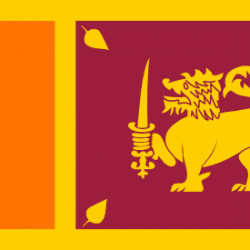
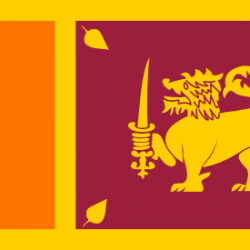
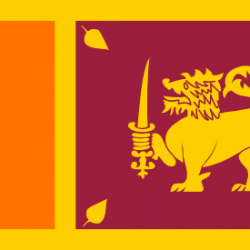
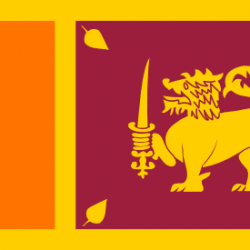
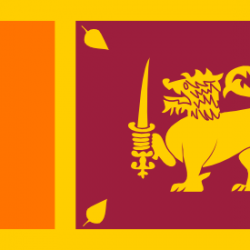
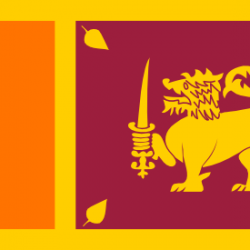
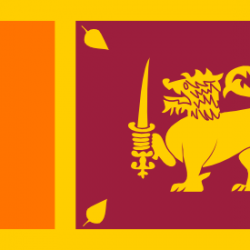
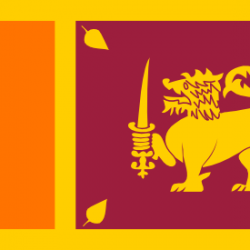
 We will not leak your personal information
We will not leak your personal information